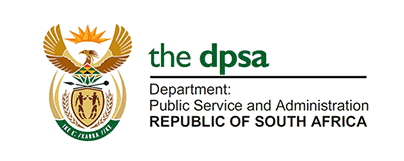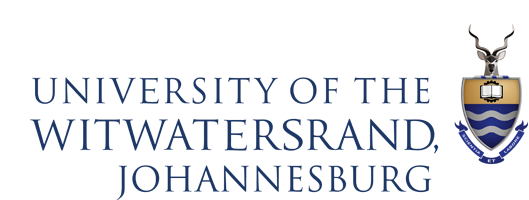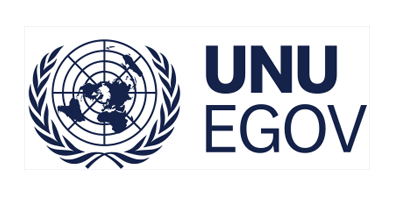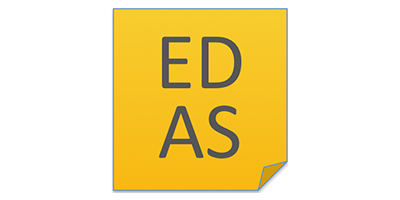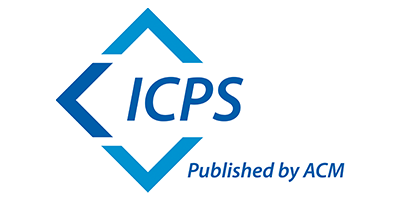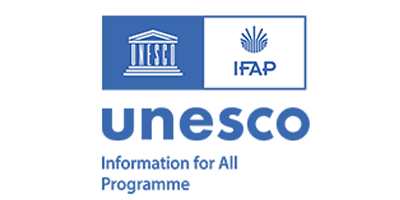Summary
About
The 11th International Conference on Theory and Practice of Electronic Governance (ICEGOV2018) took place in Galway, Ireland, between 4 and 6 April 2018. The conference was held under the high patronage of the Department of Public Expenditure and Reform (DPER), Government of Ireland. The Insight Centre for Data Analytics, part of the National University of Ireland Galway, co-organised ICEGOV2018 with the United Nations University Operating Unit on Policy-Driven Electronic Governance (UNU-EGOV), the latter also serving as the ICEGOV Series Organizer. The United Nations Educational, Scientific and Cultural Organization (UNESCO) acted as a collaborator.
Continuing the ICEGOV tradition, ICEGOV2018 featured a rich academic, capacity-building and network-building programme (available for download here) of keynote lectures, plenary sessions, track sessions, invited sessions, a poster exhibition, and a doctoral colloquium, all based on submitted or invited contributions by researchers, experts, policy-makers, and practitioners from around the world.
Call for Papers
In response to the Call for Papers (available for download here), ICEGOV2018 received a total of 183 submissions written by 378 authors from 60 countries and economies. Subsequently, there was a double-blind peer-review process carried out by the Programme Committee. On this basis, 107 papers were accepted, including 73 full papers, 7 short papers, 22 posters and 5 doctoral research papers. However, 3 papers were later withdrawn, leaving a total of 104 papers that were then revised to address the comments received from the reviewers and were presented at the conference as part of the Track Sessions, the Poster Exhibition, and the Doctoral Colloquium, and are included in the conference proceedings.
A poster exhibition was organized in a reception style to allow authors to present their ongoing work, receive feedback, and engage in discussions and networking. A total of 22 posters were accepted for the conference and presented at the Poster Exhibition.
An interactive Doctoral Colloquium took place on 3 April 2018, providing doctoral students from different disciplines an opportunity to present their accepted papers and discuss a variety of EGOV topics and issues associated with their research work, dissertations, and career plans. During the Colloquium, 5 PhD students presented their research work and received feedback from senior faculty members.
Best Paper Awards
The conference also organized awards for the Best Research Paper, Best Experience Paper and Best Poster categories. All categories were chosen by the Awards Committee. The winning papers are shown below.
Best research paper: Continued Intention to Use Online Participatory Budgeting: The Effect of Empowerment and Habit by Mijail Naranjo Zolotov, Tiago Oliveira and Sven Casteleyn.
Best Experience Paper: Convergence or Conflict? Digital Identities vs. Citizenship Rights: Case Study of Unique Identification Number, Aadhaar, in India by Martha A. Avila-Maravilla and Nidhi Vij Mali.
Best Poster Paper: Serious Gaming for Developing Open Government Data Policies by Local Governments by Fernando Kleiman, Marijn Janssen and Sebastiaan Meijer.
Statistics
If you would like more data than what is available on this page, please email your request to icegov@icegov.org.
Attendance: 157 people
Gender balance: 108 male, 49 female (69% / 31%)
Countries: 48
Country distribution: 22 developed countries, 26 developing countries (46% / 54%)
Papers submitted: 183
Authors: 378 authors from 60 countries
Papers published: 104
Acceptance rate: 45%*
Scholarships awarded: 37
Programme Committee: 121 members from 41 countries
*the acceptance rate includes only full and short papers; poster papers, workshops or invited talks are not considered.
Proceedings
Publications
Institutions
Patron: Department of Public Expenditure and Reform, Government of Ireland
Organisers: Insight Centre for Data Analytics – National University of Ireland Galway, United Nations University Operating Unit on Policy-Driven Electronic Governance (UNU-EGOV)
In collaboration with: United Nations Educational, Scientific and Cultural Organization (UNESCO)
Sponsors
Science Foundation Ireland
Failte Ireland
Academic Partner
Universidad Nacional del Sur, Argentina
Comittees
Conference Chairs
Oliver DANIELS, INSIGHT Centre for Data Analytics, Ireland
Jakob RHYNER, United Nations University, Germany
Conference Committee
Atreyi KANKANHALLI, National University of Singapore, Singapore • PC Chair
Adegboyega OJO, National University of Ireland Galway, Ireland • PC Chair
Delfina SOARES, United Nations University (UNU-EGOV), Portugal • PC Chair
Niall Ó BROLCHÁIN, National University of Ireland Galway, Ireland • Organization Chair (NUIG)
Elisabete SIMÕES, United Nations University (UNU-EGOV), Portugal • Organization Chair (UNU)
Lukasz PORWOL, Insight Centre for Data Analytics, Ireland • Communication Chair
Mariana LAMEIRAS, United Nations University (UNU-EGOV), Portugal • Workshops Chair
Morten MEYERHOFF NIELSEN, United Nations University (UNU-EGOV), Portugal • Invited Sessions Chair
ICEGOV Steering Committee (2018)
Rehema BAGUMA, Makerere University, Uganda
John BERTOT, University of Maryland, United States
João CARVALHO, United Nations University (UNU-EGOV), Portugal
Wojciech CELLARY, Pozna? University of Economics and Business, Poland
Radha CHAUHAN, Government e-Marketplace, India
Elsa ESTEVEZ, National University of the South, Argentina (Chair)
Paul HECTOR, UNESCO Regional Bureau for Sciences in the Arab States, Egypt
Tomasz JANOWSKI, Technical University of Gda?sk, Poland
Marijn JANSSEN, Delft University of Technology, Netherlands
Theresa PARDO, Center for Technology in Government, SUNY, United States
Peter PARYCEK, Danube University Krems, Austria
Delfina SOARES, United Nations University (UNU-EGOV), Portugal
Luís SOARES BARBOSA, United Nations University (UNU-EGOV), Portugal
ICEGOV Secretariat
Cristina BRAGA, United Nations University (UNU-EGOV), Portugal
José FARIA, United Nations University (UNU-EGOV), Portugal
Mariana LAMEIRAS, United Nations University (UNU-EGOV), Portugal
Morten MEYERHOFF NIELSEN, United Nations University (UNU-EGOV), Portugal
Mário PEIXOTO, United Nations University (UNU-EGOV), Portugal
Awards Committee
Manuel BOLÍVAR
Luis LUNA-REYES
Marie Anne MACADOR
Sehl MELLOULI
Theresa PARDO (Chair)
Fadi SALEM
Programme Committee
Gbenga ADEBUSUYI, State Government of Osun, Nigeria
Steve ADESHINA, Nile University of Nigeria, Nigeria
Fatemeh AHMADI, National University of Ireland Galway, Ireland
Erwin ALAMPAY, University of the Philippines, Philippines
Ayman ALARABIAT, University of Minho, Portugal
Luis ALVAREZ SABUCEDO, University of Vigo, Spain
Luís AMARAL, University of Minho, Portugal
Dennis ANDERSON, St. Francis College, United States
Leonidas ANTHOPOULOS, University of Applied Science (TEI) of Larissa, Greece
Sylvia ARCHMANN, Federal Chancellery of Austria, Austria
Irfanullah ARFEEN, United Nations University (UNU-EGOV), Portugal
Johanna AWOTWI, Centre on e-Governance, Ghana
Majed AYYAD, University of Trento, Italy
Frank BANNISTER, Trinity College Dublin, Ireland, Ireland
Luís BARBOSA, United Nations University (UNU-EGOV), Portugal
Maria BEEBE, Global Networks, United States
Mesfin BELACHEW, Agricultural Transformation Agency (ATA), Ethiopia
Soumaya BEN DHAOU, United Nations University (UNU-EGOV), Portugal
Hatem BEN STA, University of Tunis at El Manar, Tunisia
Jaroslav BERCE, University of Ljubljana, Slovenia
Lasse BERNTZEN, University College of Southeast Norway, Norway
John BERTOT, University of Maryland, United States
Hasnain BOKHARI, University of Erfurt, Germany
Luis M. CAMARINHA-MATOS, Lisbon University, Portugal
João Álvaro CARVALHO, United Nations University (UNU-EGOV), Portugal
Nuno CARVALHO, United Nations University (UNU-EGOV), Portugal
Joana CARVALHO, University of Minho, Portugal
Alejandra CECHICH, National University of Comahue, Argentina
Wojciech CELLARY, Poznan University of Economics and Business, Poland
Yu-Che CHEN, University of Nebraska at Omaha, United States
Sunil CHOENNI, Research and Documentation Centre (WODC), Ministry of Justice, Netherlands
Andrei CHUGUNOV, e-Government Center, ITMO University, Russia
Soon Ae CHUN, City University of New York, United States
Jose CLASTORNIK, AGESIC, Uruguay
Gaston CONCHA, University Santa Maria, Chile
Meghan COOK, Center for Technology in Government, University at Albany SUNY, United States
Flavio S. Corrêa DA SILVA, University of São Paulo, Brazil
Gonçalo DIAS, University of Aveiro, Portugal
Débora DUTRA, University of Minho, Portugal, and State University of RS, Brazil
Elsa ESTEVEZ, National University of the South, Argentina
Sara FERNANDES, University of Minho, Portugal
Isabel FERREIRA, Polytechnic Institute of Cávado and Ave, Portugal
Pablo FILLOTTRANI, National University of the South, Argentina
Victor FONTE, United Nations University (UNU-EGOV), Portugal
Mila GASCO, Center for Technology in Government, University at Albany SUNY, United States
J. Ramon GIL-GARCIA, University at Albany, State University of New York, United States
Yiwei GONG, Wuhan University, China
Karim HAMZA, Institute for European Studies, Vrije Universiteit Brussel, Egypt
Roger HARRIS, Roger Harris Associates, Hong Kong
Mathias HATAKKA, Dalarna University, Sweden
C S Bryan HO, University of Macau, Macau
Vigneswara ILAVARASAN, Indian Institute of Technology Delhi, India
Tupokigwe ISAGAH, University of Koblenz-Landau, Germany
Yury KABANOV, National Research University Higher School of Economics, Russia
Atreyi KANKANHALLI, National University of Singapore, Singapore (PC Chair)
Ralf KLISCHEWSKI, German University in Cairo, Egypt
Robert KRIMMER, Tallinn University of Technology, Estonia
Hiroko KUDO, Chuo University, Japan
Mariana LAMEIRAS, United Nations University (UNU-EGOV) and Communication and Society Research Center (CSRC), University of Minho, Portugal
Jungwoo LEE, Yonsei University, Republic of Korea
Calvin LEONG, MSARG, Macau
Nuno LOPES, United Nations University (UNU-EGOV), Portugal
Rui Pedro LOURENÇO, University of Coimbra, Portugal
Luis F. LUNA-REYES, University at Albany, SUNY, United States
Nidhi Vij MALI, University of Mississippi, United States
João MARTINS, United Nations University (UNU-EGOV), Portugal
Ricardo MATHEUS, Delft University of Technology, Brazil
Rony MEDAGLIA, Copenhagen Business School, Denmark
Elahe MEYDANI, RWTH Aachen University, Germany
Morten MEYERHOFF NIELSEN, United Nations University (UNU-EGOV), Portugal
Yuri MISNIKOV, e-Governance Academy, Estonia
Harekrishna MISRA, Institute of Rural Management Anand, India
Carl Erik MOE, University of Adger, Norway
Maria Helena MONTEIRO, Lisbon University, Portugal
Taewoo NAM, Sungkyunkwan University, Republic of Korea
Lizzy OFUSORI, University of KwaZulu-Natal, South Africa
Adegboyega OJO, National University of Ireland Galway, Ireland (PC Chair)
Kayode OLANIYAN, National Bureau of Statistics, Abuja, Nigeria
Vassilios PERISTERAS, International Hellenic University, Greece
Anna PICCO-SCHWENDENER, Università della Svizzera Italiana, Switzerland
Edy PORTMANN, University of Bern, Switzerland
Lukasz PORWOL, National University of Ireland Galway, Ireland
Devendra POTNIS, University of Tennessee at Knoxville, United States
Amit PRAKASH, International Institute of Information Technology Bangalore, India
Marco PRANDINI, University of Bologne, Italy
Rui QUARESMA, University of Évora, Portugal
Voahangy RAKOTONIRINA, University of Antananarivo, Madagascar
Nicolau REINHARD, University of São Paulo, Brazil
Manuel Pedro RODRÍGUEZ BOLÍVAR, University of Granada, Spain
Ibrahim ROHMAN, United Nations University (UNU-EGOV), Portugal
Edgar Alejandro RUVALCABA GOMEZ, Madrid Autonomous University, Spain
Alexander RYJOV, Moscow State University and Russian Presidential Academy of National Economy and Public Administration, Russia
Jenny Marcela SANCHEZ-TORRES, National University of Colombia, Colombia
Rodrigo SANDOVAL-ALMAZAN, Mexico State Autonomous University, Mexico
Demetrios SARANTIS, National Technical University Athens, Greece
Priya SEETHARAMAN, Indian Institute of Management Calcutta, India
Muhaemin SIDIQ, muhaem.in, India
Tiago SILVA, United Nations University (UNU-EGOV), Portugal
Hamida SKANDRANI, Institut Supérieur de Comptabilité et d’Administration des Entreprises, Tunisia
Eriks SNEIDERS, Stockholm University, Sweden
Delfina SOARES, United Nations University (UNU-EGOV), Portugal (PC Chair)
Andrzej SOBCZAK, Warsaw School of Economics, Poland
Ralf-Martin SOE, Tallinn University of Technology, Estonia
Henk SOL, University of Groingen, Netherlands
Fabro STEIBEL, ITS Rio and Laboratory for Creative Cities ESPM Rio, Brazil
Evgeny STYRIN, National Research University Higher School of Economics, Russia
Efthimios TAMBOURIS, University of Macedonia, Greece
António TAVARES, United Nations University (UNU-EGOV), Portugal
Louise THOMASEN, coThomasen, Denmark
Javier Carranza Torres TRESOLDI, GeoCensos, Colombia
Dmitrii TRUTNEV, e-Government Center, ITMO University, Russia
Hossana TWINOMURINZI, University of South Africa, South Africa
David VALLE-CRUZ, Autonomous University of the State of Mexico, Mexico
Linda VEIGA, University of Minho and United Nations University (UNU-EGOV), Portugal
Gabriela VIALE PEREIRA, Danube University Krems, Austria
Lyudmila VIDIASOVA, ITMO University, Russia
Maria WIMMER, University of Koblenz-Landau, Germany
Peter WINSTANLEY, Scottish Government, United Kingdom
Tung-Mou YANG, National Taiwan University, Chinese Taipei
Moinul ZABER, University of Dhaka, Bangladesh
Cristina ZERPA, AGESIC, Uruguay
Sub-reviewers
Dongpo DENG, Industrial Technology Research Institute, Chinese Taipei
Niels NETTEN, Research and Documentation Centre, Ministry of Justice and Security, Netherlands
Mortaza S. BARGH, Research and Documentation Centre, Ministry of Justice and Security, Netherlands
João Marco SILVA, University of Minho and INESC-TEC, Portugal
Lakshmikant TIWARI, Institute of Rural Management Anand, India
Michalis VAFOPOULOS, National Technical University of Athens, Greece
Sessions
The full programme of the conference is available for download here.

